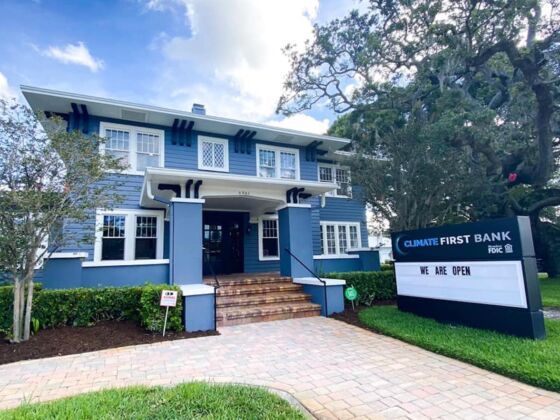This is the Climate Win, the most positive sustainability news around the world every week.
Whether you’re a traveler, digital nomad, or remote business owner, a new bank offers you remote banking in a way that lets you run your finances in a climate-friendly, socially conscious manner. Climate First Bank, which opened its first physical branch in St. Petersburg, Florida, this spring, is on a mission to be the largest values-aligned bank in the United States.
